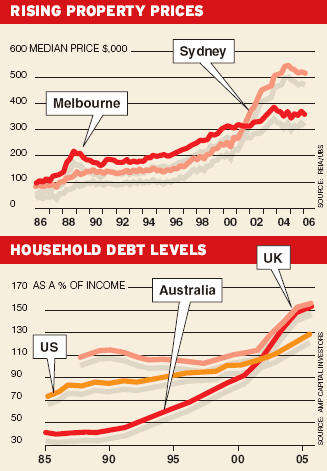Pops, this is nonsense. OPEC is trying to keep prices low, they know that high prices = lower demand, bigger investments into alternatives => in future ability to sell less oil.
Check some articles about it, they actually fear world recession from rising prices, Saudis are trying to improve oil production, they even ask their competitor- Russians, to produce more..
What alternatives are there to oil for transportation,fertilizer, electric generation on a large scale, plastics, chemicals etc????
As oil declines it's value will rise and raise the price of everything else.
The value of the doller will also decline because of our huge debt and trade imbalance.
Internatioinal trade will decline because of the expence of transportation, more will have to be done localy including food production but our ability to grow food will also decline.
Many other economic activities will also decline like mining, fishing, electric generation, manufacturing, airlines will go out of business and all transportation will decline.
Even India depends upon imports of oil for transportation, farming and fertilizers.Their ability to feed themselves will also decline and they will be unable to import food to make up the difference.
At first as oil becomes more expensive, people will be forced to conserve and oil prices may briefly stabilize, but eventualy demand will exceed supply and oil prices will rise quicky as nations compete for what remains.
Expect more wars for oil,mass immigration, border wars, the military deployed to protect farms & grocery shops from looters,and big cities becoming unmanagable 'jungles'.
Our ability to treat sewage, water, pump water, pick up garbage and fight forest fires will also decline
Fuel may be allocated for essential uses, farming,military and some transportation.
For at least as long as it lasts that is.
Draft horses and mules will become more in demand as will blacksmithing skills.
Of course draft animals must eat every day so more land will have to be dedicated to growing food for them leaving less land to grow food for humans.
Few people will be able to afford pets.In cities, pets will become food.
Rat catchers will sell their catch for good prices.
SUVs will be used for scrap metal and fishing boats will have to return to sail as there main power source.
I think there will be a huge die off of humans, more in some places than others, so called 'primitives' will fare best as will subsistance farmers.
Worse off will be those countries that depend upon high energy imputs to grow and transport their food and manufactured goods.
I don't see how we can avoid a major depression as oil and natural gas declines.

There will however be more jobs for farmers and farm workers, draft animal breeders and trainers, blacksmiths, military, and wood workers.
There will be a open hunting season on politicians and economists.








